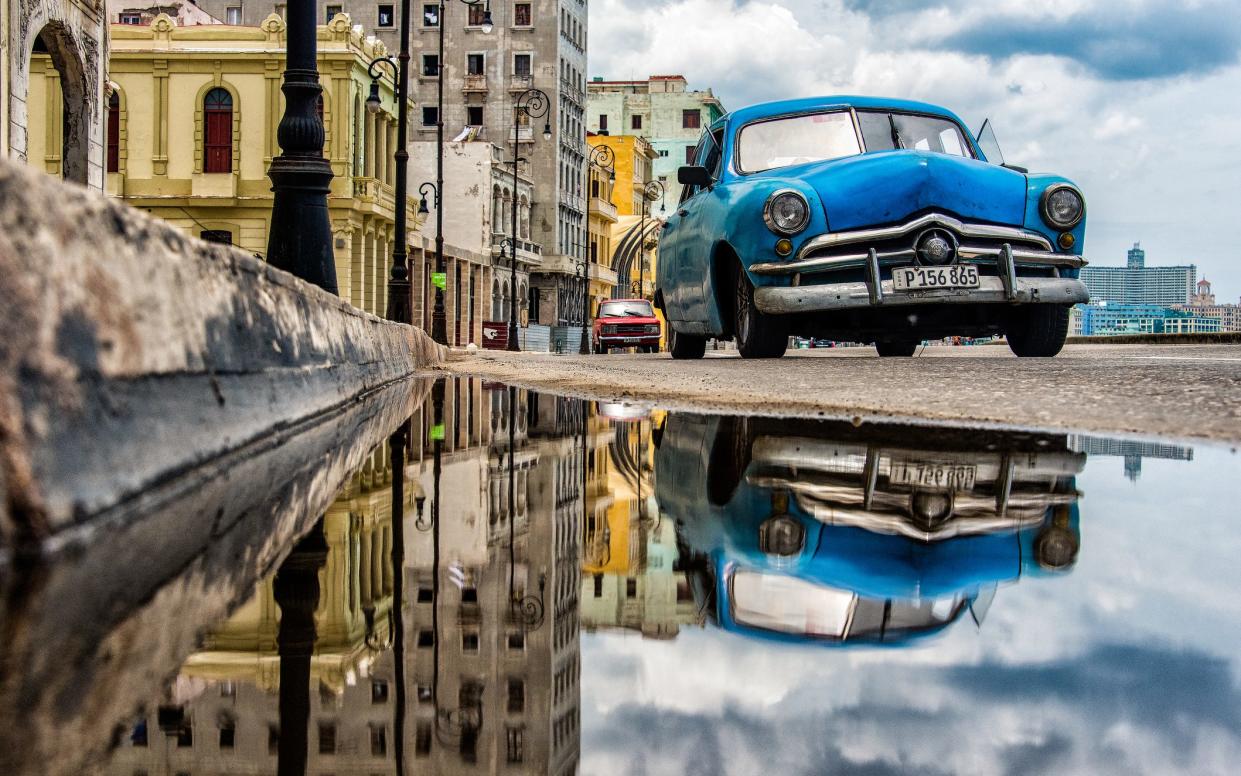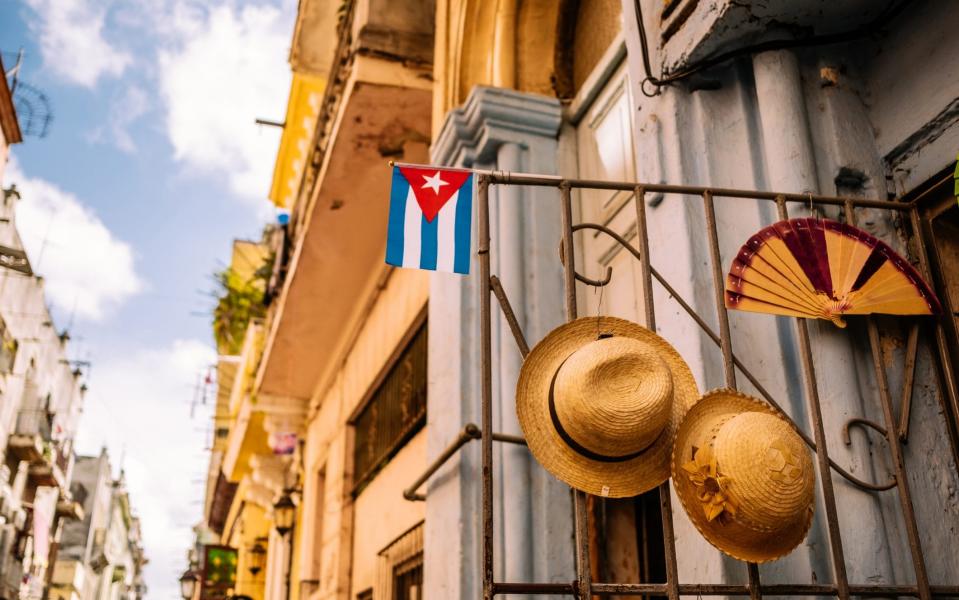'We've bigger worries than Covid – we're hungry': Cubans long for the return of tourists

From muscle-memory alone, Havana is music and dance. My hips involuntarily wiggle thinking of rumba freestyled along the Malecon, my stride quickens to the tempo of energetic reggaeton, I flex my toes en pointe, madam’s instructions to her pupils to grande jeté and the like – commands that seeped through the louvre shutters of the ballet school and into a room I once rented in Hotel Inglaterra.
Son, jazz, reggaeton, salsa, rumba, classical – insatiable La Habana. Yet for now during Cuba’s second Covid-19 wave, the city has lost is rhythmic mojo.
All looked promising for Cuba back on November 15. They opened to international arrivals after six months of lockdown, only to experience a surge in cases, possibly imported by Floridian exiles during Christmas. Havana returned to lockdown on January 10, requiring arrivals to take a PCR test, then quarantine for five days. I came to research news stories about this lockdown and the imminence of a homegrown vaccine, yet found myself in a financial meltdown orchestrated by the communist government’s sharp shock of economic ‘liberalisation’ (although few Habaneros believes the regime is about to embrace capitalism any time soon).
Citywide, nightlife is curtailed by a 9pm curfew. No restaurants or bars are open, just takeaways, and my goodness, Cuban pizzas are awful. Facemasks are compulsory on the streets. Exuberant hugs and kisses have been replaced by fist bumps.
Even the gas-guzzling classic automobiles are parked up. “With no tourists, I can’t afford to put gas in the tank,” shrugs Luis, buffing the chrome of his 1950s grass-green Buick convertible down a side street.

Havana remains decibel-splittingly noisy, though. It’s just its rhythmic fluidity is now unstructured, more prosaic. From the 3rd floor of my casa particular in Old Havana, animated conversations below coalesce into a rumbling hullabaloo, punctuated by whining scooters and wall-trembling home stereos, and I have a trumpeter for a neighbour, his rising scales sounding like a ship’s horn, wary of land in thick fog. Briefly, before the curfew ends at 5am, little birds enjoy a canvas of relative silence, voicing their melodic songs.
“Havana is not just pretty buildings,” insists my landlady, Laura López Nallib. “Live music and dance come from every pore. When guests ask me where do I go to find it, I say everywhere? Every bar and restaurant have live music and dancing. This is real Havana”. I long for it to return.
You can add audible discontent to this sonic landscape. Cubans are used to queuing for goods, courtesy of 60 years of dogmatic concentration of the means of production and America’s embargo. Yet now queues are longer as a rapid economic restructuring has triggered inflation and burgeoning black-market prices. The post-Castro government is wringing every dollar out of its long-suffering citizens and has recently added many more essential daily items to stores accepting only Moneda Libremente Convertible (MLC) cards – their shelves stocked with everything from shampoo and cooking oil to canned foods. MLC cards can only be charged up by adding foreign currency, not Cuban pesos. It has sent Cubans scrambling for Forex on the black market.

“In January you could buy a deodorant for $2. Now it’s five times the price,” explains Claude, a French businessman at my digs. Even the cradle-to-grave subsidised ration books all Cubans’ possess have been devalued by spiralling price rises. A man queuing outside a bakery one morning tells me bread prices have risen twenty-fold since Christmas. “We have bigger worries than Covid-19,” he says. “We’re hungry”.
On a slow walk across Havana on a free Sunday morning, hoping to encounter impromptu music, I pass the legendary tourist trap, La Floridita, now shut, where Hemingway imbibed daquiris, papa doble style – two shots, no sugar – until toppling off his barstool or staggering around the corner to Le Bodeguita del Medio where (debatably) he drank mojitos. It’s also closed. As is Hotel Inglaterra and the ballet school, although in the baroque Plaza de la Catedral young ballerinas are put through their paces al fresco.

Likewise, the drummed rhythm of rumba in Callejón de Hamel, performed every Sunday here to summon the Afro-Cuban Santería spirits, has also fallen silent. Just a stall remains open, selling voodoo baubles to non-existent tourists (manned, incongruously, by a trader called Jesus). Can the spirits not protect against Covid-19, I ask?
“No. We usually bless weddings and funerals,” says Jesus.
Returning via the Malecon, the Caribbean is quicksilver smooth, reddening at sunset. There are fewer anglers than I recall, no young lovers promenading, the Jineteras no longer hustle for business in nights lost to curfew, nor are there any impromptu gatherings, dancing rumba, salsa, or wherever the rhythm takes them.
Habaneros are in stasis, waiting for a program of home-produced vaccines. Final trials of several candidate vaccines are underway, and Cuba’s leadership insists they will vaccinate the entire population by late 2021.
“We need it badly,” says Laura, as I beat curfew back to her casa. “We need our rhythm to return,” she says as the trumpeter next door revisits his scales. “He’s part of a Buena Vista group,” says Laura, wincing. “But that doesn’t make him any good”.


